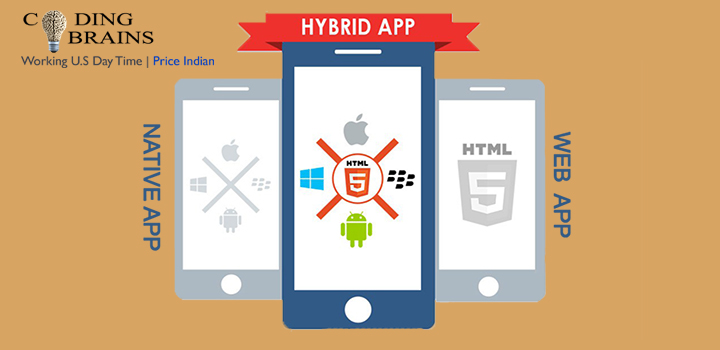
Broad categorization of Mobile Apps can put into three major slabs like native, hybrid and web apps. Native apps benefit all the features of mobile devices including its operating system and whereas web apps are concerned they let you they enable you to reach the targetted audiences across platforms without much development time & cost. However, hybrid app development provides you an ability to create an app to be available for both Android and iOS operating devices.
Native vs Hybrid Apps
When you browse this topic you will come across various discussions on the same. However, I will point you to the facts that will help you in making the decision whether to develop the Hybrid or Native app.
A native app is developed for a particular operating system such as iOS and Android. It is needless as all are aware today that native apps encompass all the features of the operating system including pursuing the guidelines of the operating system and providing optimum performance.
The user communication with the app is steady with other native apps on the device which assists the user to operate the app faster. Native apps also have an advantage like built-in abilities of the user’s device such as GPS, address book, camera and so on.
Hybrid apps are compatible with both Android and iOS operating devices. They are developed utilizing HTML5 & Javascript and gives the native feel. A basic existing code is used to develop hybrid apps in order to give a native-like feel.
Quick Overview of Advantages and Drawbacks
Advantages
They are various positive aspects of hybrid app development as a developer can utilize existing web knowledge and its one code base enables access to multiple platforms. Due to this, it takes less development time and cost. Effectively can be designed for numerous screen types like tablets utilizing responsive web design. It also enables access to device and operating system features along with advanced offline abilities.
Drawbacks
The drawbacks of hybrid app development are the performance issues for apps expecting complex native functionality, cannot support all operating system features and risk of rejection at the app store for the absence of native feel.
The most beneficial aspect of choosing hybrid app development is that it utilizes your web skills. However, exceptional efforts are not required to build a hybrid app if you are already skilled in web development.
Also if you have less timespan hybrid app is the best option as it can be developed in one source code and delivered across different platforms, and development time is fairly less as opposed to that of native applications.
Hybrid App: User Experience
When it comes to development it takes less time also can be deployed on both Android and iOS operating platforms but when it comes to user experience it lacks the native feel. User experience is a major factor for any app success as the hybrid app can give the feel of native but the many features of both platforms operating systems are inaccessible. To basically point out the fact both platforms Android and iOS are very distinct and there is really no alternative to create a mobile app that can cater to users of both operating systems.
As their techniques and composition guidelines are completely distinct, making it challenging to develop a hybrid app with an excellent user experience.
So Does Hybrid App fulfills your objective?
Eventually, everything comes down to your business purposes and aims. It is important to examine your target audience and their inclinations. Based on that analysis, you should base your decision to opt your app requirement to be on both Android and iOS.


Leave a Reply